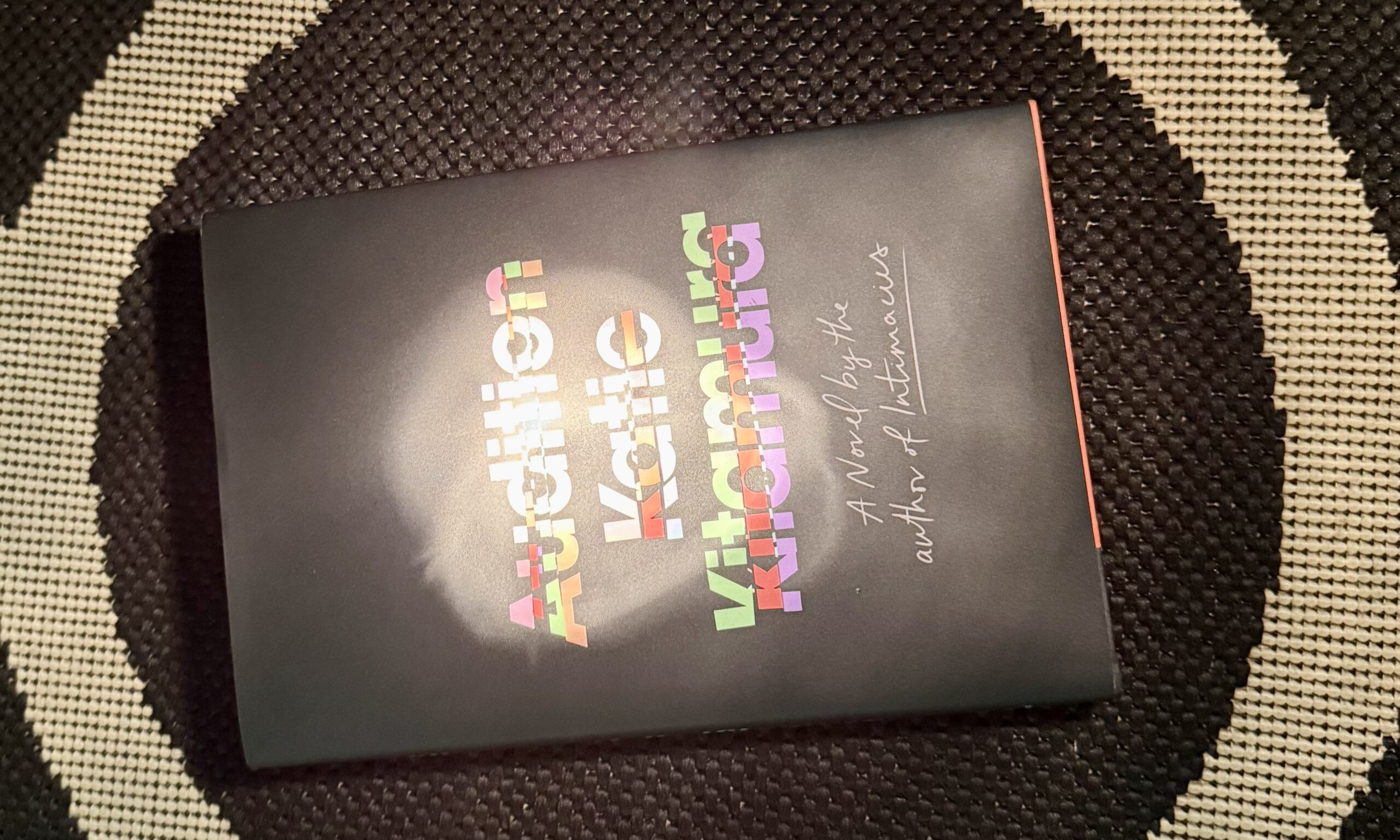Although I briefly attempted acting, (perhaps you recall my grad school performance as Masha in Chekhov’s The Seagull—what, no?), I sometimes found the actors I knew (and maybe also briefly dated) to be performative even in private. I had the sense of their trying on and shucking off selves; what made them most successful on stage or in film made them unsuitable for intimacy. I realize this take is reductive and personal, but occasionally their undeniable charisma was accompanied by a slipperiness at the core. Certainly there is something fascinating and a bit disconcerting about those who make a living inhabiting other lives. In Katie Kitamura’s disorienting, virtuosic new novel, Audition, she writes/directs actors and playwrights both on the stage and in the confines of a family. What is reality, what is a role? Who is auditioning and for what, exactly? There are at least three different plays in rehearsal and production in this book; at the end, we launch into a fourth that is likely a version of what we have just read.
Act One opens in a crowded Manhattan restaurant as an older woman, an actor of some renown, expresses uncertainty about her lunch date with a much younger man. Kitamura’s writing style is both like a play—the characters perform for one another, and each action (a lifted drink, an extended hand) is deliberate—and, in some ways, the opposite of a play: the sentences are strung together by lilting commas, the unpunctuated dialogue muffles rather than highlights the spoken words, and thoughts remain interior. The unnamed (and therefore cast as “type”) narrator imagines the restaurant audience assigning her different roles in relation to the young man, Xaviar: older lover, lonely woman paying for companionship, mother. The third main character, her husband, Tomas, makes a surprising appearance, and without acknowledging the other two, swiftly exits. Thus, the scene is set with themes of betrayal, performance both professional and personal, family relationships, and the question of what is truth and what is fiction. In this part of the novel, the narrator, who claims she has never given birth to a child, is rehearsing for a play, The Opposite Shore. Soon, Xaviar is working for the play’s director as the narrator agonizes about her central scene, one crucial to the transition from first act to second, the scene she must master in order for her performance (and the play) to succeed. “We begin now,” the director announces, and the curtain falls on Part One of Audition.
Act Two (Part Two) begins again in the same restaurant, under a spotlight. We are watching the three main characters, but this time, reality has shifted. The narrator and her husband, Tomas, are with their son, Xaviar, toasting the success of the narrator’s play, now called Rivers. Much of the subsequent action is contained in the family’s apartment, where Xaviar has moved back in with his girlfriend, upending his parents’ lives. Everything we have learned in Part One informs our understanding of Part Two, even as the roles have changed and, before our eyes, continue to morph and warp. The narrative takes on the unsettling tone of a horror movie: an enormous modern desk hulks in the corner, Tomas acts as a mistreated butler, the apartment transforms into a harshly-lit stage that the horrified narrator observes from the street. We are no longer attending a realistic domestic drama: we are somewhere parallel, trapped in an experimental, shocking performance that seems a warped version of what has come before. “Here,” the narrator reports at the end, as she steps onto the stage to act in a play her son has written, “it is possible to be two things at once. Not a splitting of personality or psyche, but the natural superimposition of one mind on top of another mind. In the space between them, a performance becomes possible.”
Though Kitamura’s style and interests remind me of other writers, the whole is something brilliantly original. I found it hard to believe the book was so short; I immediately re-read to find the seeds of Part Two sprinkled throughout Part One, and to admire how she had scripted what the narrator describes as “always two stories taking place at once, the narrative inside the play and the narrative around it, and the boundary between the two [that] is more porous than you might think, that is both the danger and excitement of the performance.”




